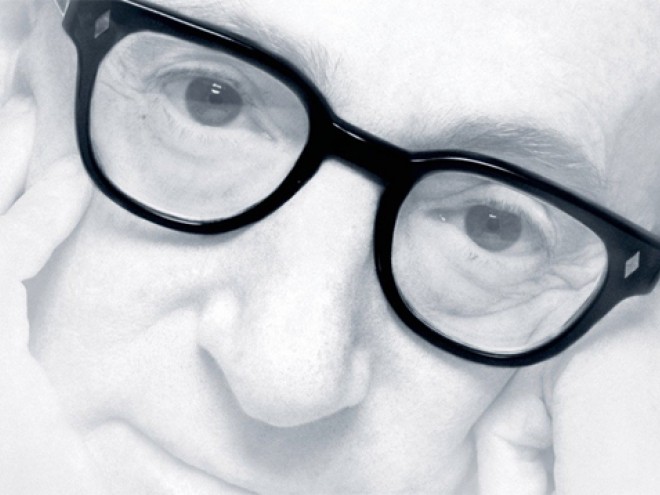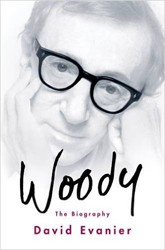The editors of this collection of essays have given their contributors considerable leeway to investigate subjects that interest them, and the results are predictably mixed. While many of the essays offer important in-dividual insights, they don’t cohere to provide a comprehensive view of how Allen deals with Jewish identity in his works.
After an introductory overview by Vincent Brook that is probably the most valuable piece in the volume, the essays are grouped into broadly-conceived sections: comparative anal-ysis of the treatment of Jewish morality and ethics in films such as Crimes and Misdemeanors, Cassandra’s Dream, and Match Point; the figure of the schlemiel in Allen’s works; Allen’s treatment of women in his films; and “cultural studies” — an essay on Allen’s use of food as a cultural signifier in his works, and another on his often-overlooked works for the theater.
The essays on morality and on women’s issues are particularly problematic. Advocating for the importance of specifically Jewish ethics in films that are relentlessly existentialist in outlook is a far stretch, even if the volume’s post-structuralist underpinnings invite the argument that absence is merely another form of presence. And while the writers on women’s issues argue that Allen is contemptu-ous of the stereotypically vapid and selfish Jewish-American Princess, and thus of Jewish women in general, while obsessed with the equally stereotypical Shiksa Goddess, they also point out that many strong and admirable Jewish women figure in Allen’s films — too many to dismiss as mere “exceptions that prove the rule.” (And no mention at all is made of his sister, Letty Aronson, who has produced virtually all of his films over the last twenty years.) Furthermore, though the volume as a whole attaches considerable significance to the scandal that arose when Allen left Mia Farrow to marry Farrow’s adopted daughter Soon-Yi Previn, it barely registers that in doing so Allen rejected a paradigmatic Shiksa Goddess in favor of someone who partakes far more of “otherness.”
This book will likely be of interest to ardent Allen fans, but even many of them will find it rough sledding. The contributors are all academics who study film, so it is not surprising that the prose is shot through with post-structuralism critical jargon that can be off-putting, to say the least. It is often hard to discern the authors’ own attitudes toward Jewish identity: Is the phrase “Jew York City” in fact kosher these days? Does Jewish domestic-ity really entail, as one contributor states, “a stifling marriage, a sexually disinterested wife, the burden of children and religion, and a placid home life that inexorably leads to the loss of male identity and lack of pleasure?”
There is no doubt that how Allen regards and depicts Jewishness is a massive and complex subject. But many readers will leave this book feeling that it is both more nuanced and less difficult to grasp than the contributors to this volume would have one believe.
Related content:





